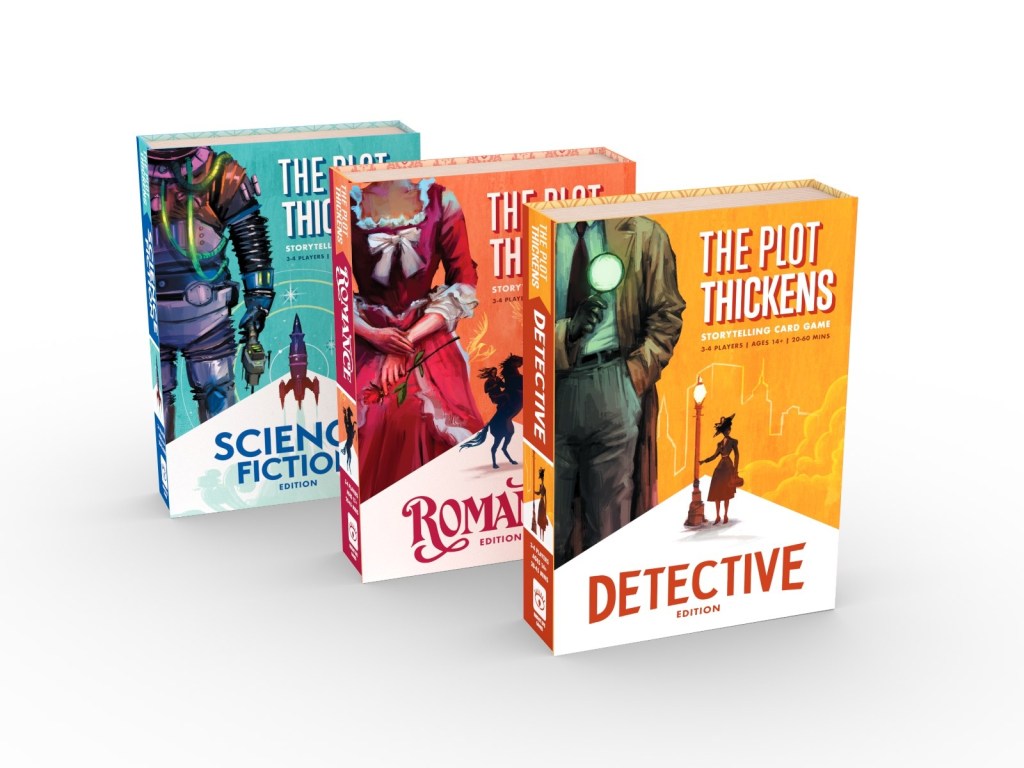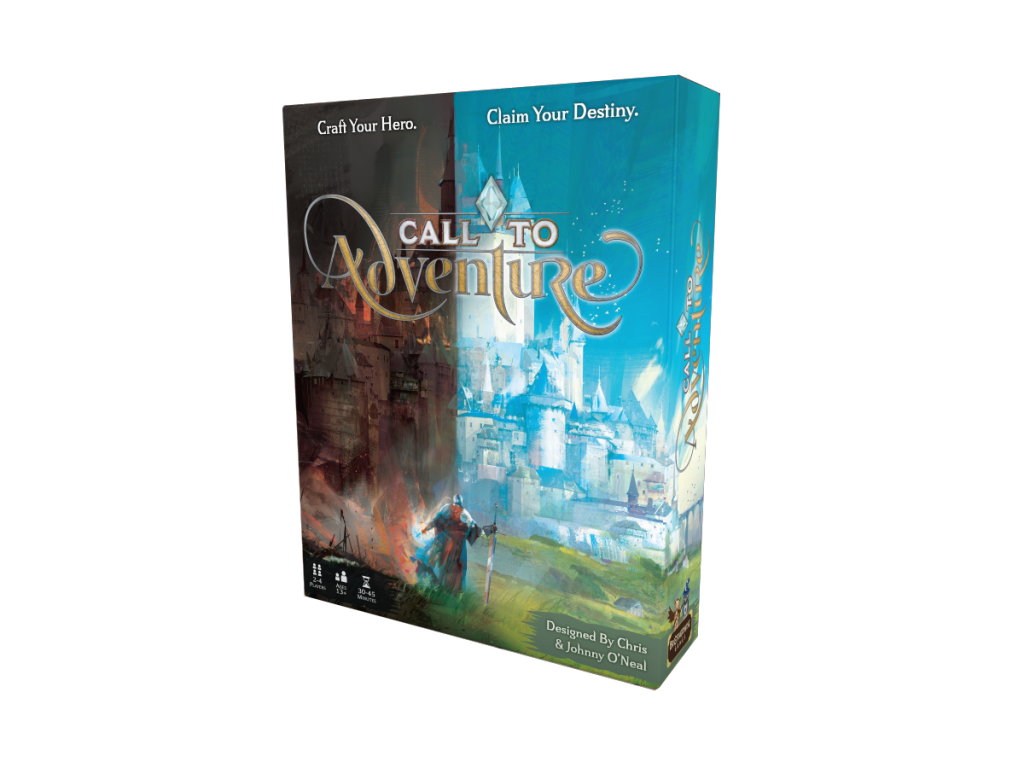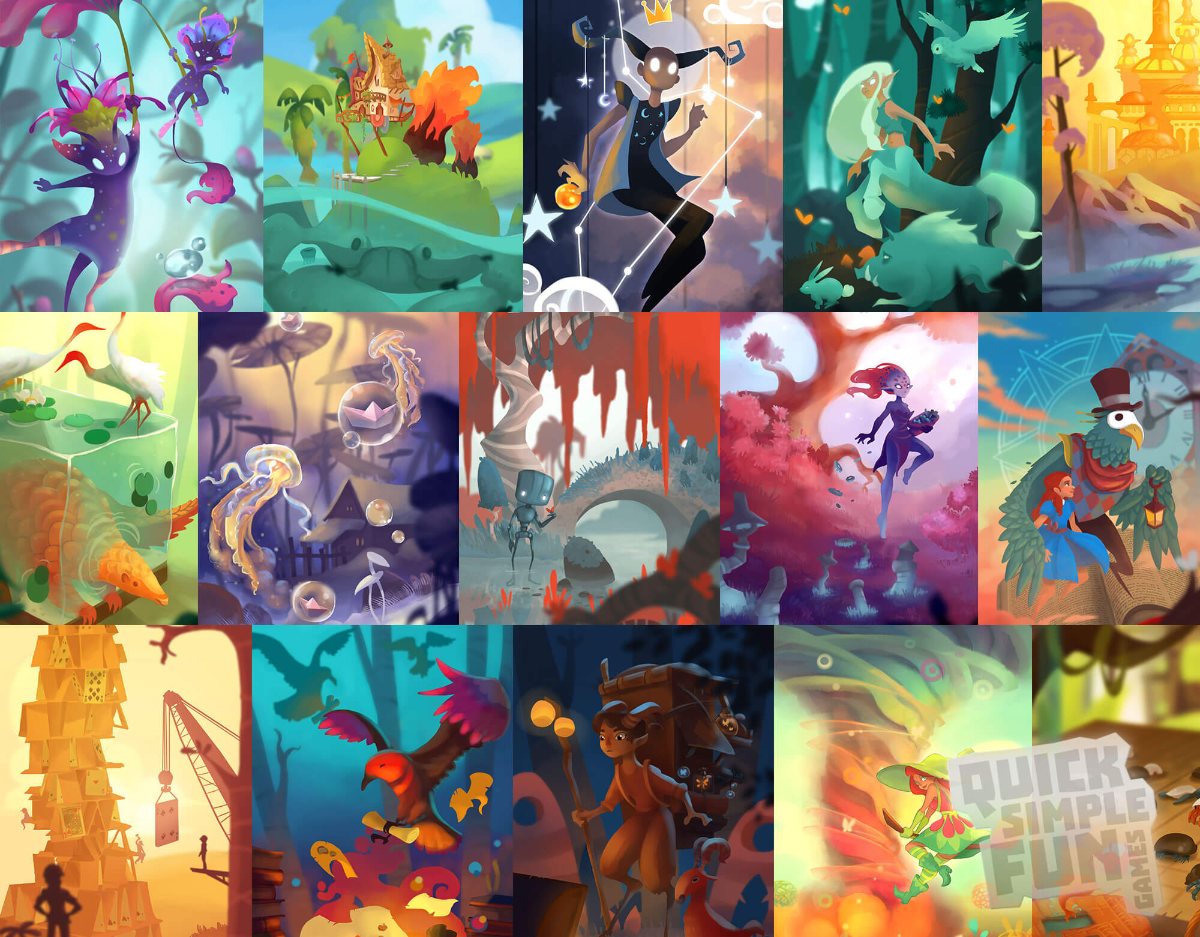Board and card games are often associated with mechanics more than stories, but these five games are story-rich, inspiring, and appeal to anyone who loves a good tale.

7. The Plot Thickens (Bright Eye Games)
The gameplay elements of The Plot Thickens might be paper-thin, but these games (in Detective, Sci-Fi and Romance variations) are excellent light storytelling games for a group that might be hesitant to start up a story without guidance or to cool down after a more mechanically-intensive game. You could easily mix and match the sets, making a sci-fi romance or detective story, and there are mechanical incentives to connecting your story elements to those played by others, giving a very light puzzle element to the game. Find it at the Bright Eye Games site.
6. Muse (Quick Simple Fun)
Muse is a team party game that combines charmingly weird pictures with problem-solving. One team selects a picture and an action (such as making a non-verbal noise or naming a fictional character) that the other team’s Muse must perform to evoke the image on the card. The Muse’s team must identify that card from amongst the cards the initial team had, which of course, the Muse has not seen. Muse has variants for simultaneous team play and two- and three-player variants. It accommodates a much higher number of players and the lighter scoring system makes it an enjoyably light game for social occasions. Find it at the Quick Simple Fun site.

5. Once Upon a Time (Atlas Games)
This classic card game is easy to play, quick to pick up, and popular enough to be in its third edition. In Once Upon a Time, players construct a story from a hand of cards with fairy tale characters, events, things, places and aspects. The aim is to get rid of all your cards by incorporating them into the narrative over time, but other players can scupper your attempts by interrupting your story if you get stuck, ramble or describe a story trope they have in their hand already. Once Upon a Time has more mechanical complexity than The Plot Thickens, but it is still a fast and easy game where the rules enable storytelling rather than getting in the way. Find it at the Atlas Games site.
4. Gloom (Atlas Games)
Gloom is a card game with a delightfully dark sense of humour as you play through the fortunes of an ill-fated family and make their lives as horrible as possible. Gloom‘s striking art style already tells a story, but it also actively encourages players to describe the gruesome details of the family’s elaborate deaths. With overtones of Edward Gorey, A Series of Unfortunate Events and The Addams Family, Gloom is sure to make you chuckle and wince at the terrible events you inflict on your chosen family. Find it at the Atlas Games site.
3. Dixit (Libellud/Asmodee)
Originally published in 2008, Dixit is a perennial favorite as a gentle board game with beautiful art and appealing aesthetics that manages to remain fun and relevant without ever becoming too complicated for new players. Players take turns choosing a card from their hand of fanciful picture cards, describe it with a word or very short phrase, and then every other player also chooses a card from their hand that they feel matches that phrase. The chosen cards are shuffled together and players have to decide which they think was the original card. It sounds easy, but the trick is that the scoring rewards just enough ambiguity that almost all of the other players guess the right card. It’s an endlessly charming guessing game that requires skill, careful consideration and a poetic mindset. Find it at the Asmodee site.
2. Dead of Winter (Plaid Hat Games/Fantasy Flight Games)
By far the most mechanically-intensive game on this list, Dead of Winter looks on the surface like a survival game, but the excellent writing, evocative characters and innovative crossroads system make this game a delight for anyone who likes to have a little more emotional investment in their zombie apocalypse. Players choose characters from the townsfolk, who range from a librarian to a Mall Santa to someone who has decided he is a ninja. These characters have their own abilities and benefits, making character choices tactical as well as flavorful. The real master-stroke here is the deck of crossroads cards, which cause some kind of development in the overall story of the survivors’ colony. Some require you to have specific characters in play, and it’s always rewarding when the card of a character you control comes up, even if it forces you to make some kind of terrible choice about the future of the colony! Find it at the FFG site.

1. Call to Adventure (Brotherwise Games)
Call to Adventure is a beautifully realized board game of story-building that any storyteller will find intriguing. The players choose backgrounds, traits and paths for their characters as they proceed through daring deeds, complex dilemmas and eventual triumph…or ruin. The initial character cards are already great prompts for anyone lacking inspiration, and the choice between coherent character and mechanical optimization can lead to some unexpectedly deep moments of characterization. The characters proceed through three acts of events, from bandit attacks to magical discoveries, eventually facing climactic plotlines that would fit into any epic fantasy novel. Each event has two options using different stats and giving different benefits, meaning that you might be tempted to have your noble knight turn to a life of crime as their stats help them achieve those goals more directly. Every time I have played this with any group of people, the emergent story has been compelling, dramatic and full of surprises. Find it at the Brotherwise Games site.








